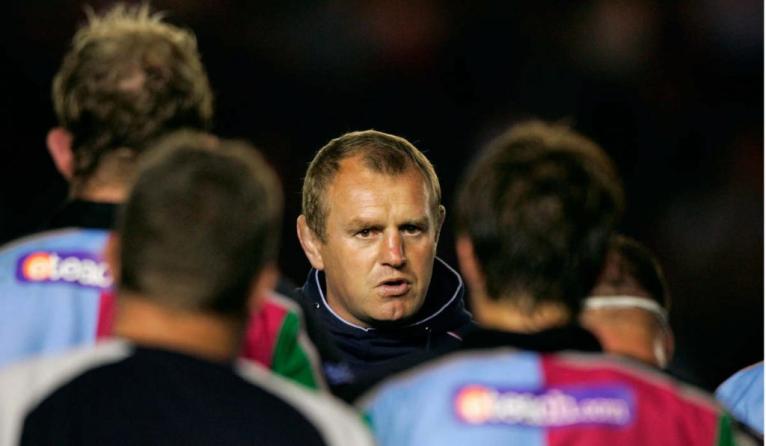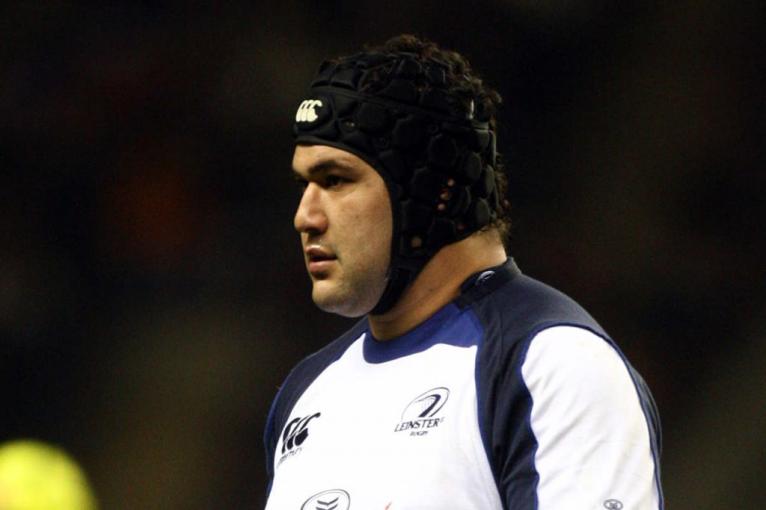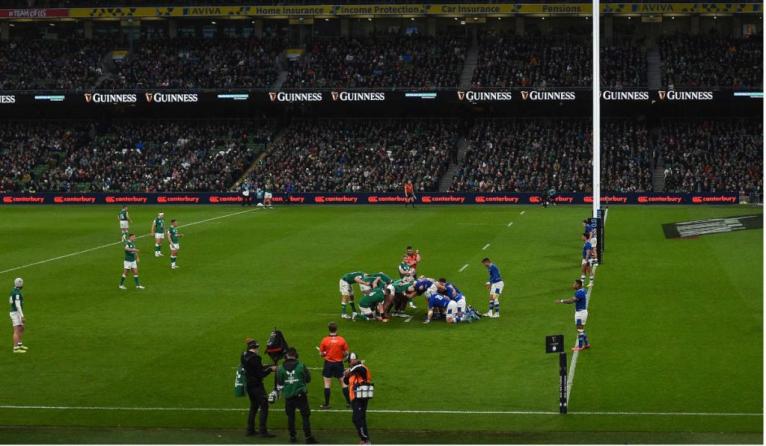Even by rugby’s standards, the scenes in Dublin in front of an audience of millions were toe-curlingly farcical. The less well informed among the millions watching might assume that, for any team to be disadvantaged in one fell swoop by the banishment of TWO players, the crimes committed must be of an uncommonly vicious and premeditated nature.
Well, get this. One of the two players banished was totally innocent. So the other, Hame Faiva – he must have been guilty, surely, of launching, say, a full-scale military invasion of a sovereign nation? Nope, he was guilty of a marginally high tackle in a very fast-moving sport.
How has it come to this? The inquests were launched almost immediately. Even as the uninformed scratched their heads in bewilderment and turned to those who might know better, the well-informed were too busy consulting law books, scarcely able to conceive of a sport, let alone their own, arriving at so absurd a policy as to make a red card equal the sending off of TWO players.

As ever with even the most seemingly absurd policies, there is method to it, a series of small innocuous micro-steps, each one justified by the last, that have led to this macro-madness. The trouble started, or in this case culminated (for it had long been a problem), in 2009. That year will always be remembered in rugby for bloodgate, so often cited as one of the sport’s darkest hours, when a team had the bare-faced cheek to use blood capsules for the faking of an injury.
So universal and vitriolic was the condemnation, one would have to think the crime in everyone’s eyes was the use of the blood capsule, because back then the actual crime – the faking of injury – was rife. It is often noted how unjust it would have been had Leinster, who would go on to become European champions despite Harlequins’ wicked ruse in the quarter-finals, been denied their right by such cynical cheating. Well, one of the most brazen faked injuries of that season was by Leinster themselves in their pool match against Wasps at Twickenham.
The point is, faked injuries, almost always for props struggling at the scrum, were endemic at the time. It was occurring on an almost-weekly basis
Wasps were murdering them at the scrum, after CJ van der Linde’s early withdrawal, so Stan Wright went down with an “injury” a few minutes before half-time, precipitating uncontested scrums for the rest of the match. Leinster escaped with a bonus point to stay level with Wasps at the top of the pool; Wright miraculously lined up for the final pool match a week later.
Wasps lost their last pool match in Castres, so Leinster’s bonus point didn’t matter in the end. The point is, faked injuries, almost always for props struggling at the scrum, were endemic at the time. When the inquests returned their verdict after bloodgate, the one material change to policy they arrived at was to address this chronic abuse, which was occurring on an almost-weekly basis.
So an extra front-row replacement was introduced, together with a law that if a team ran out of them, forcing uncontested scrums, they would not be able to replace the last. In effect, they would have to play with 14. Uncontested scrums virtually disappeared overnight, which is how we know those multiple instances before bloodgate were all the result of faked injuries.

So far, so sensible. The new trouble brewing was the obsession rugby has developed for sending players from the field for things they can’t help. Back then, this was most often realised, again, when one side was being dominated at the scrum.
Scrum down, penalty against the beaten prop. Then again. Then again. Lecture to the beaten prop about all the crimes of which he is guilty, as if all he has to do is stop deliberately ruining everybody’s fun by being such a wilfully naughty boy – when, in fact, the poor bastard is gasping out of every orifice trying to hold back the inevitable. He is warned that if he does it again he will be sent to the sin bin.
“Oh, sorry ref,” he doesn’t say. “Yellow card? You should have said. I’ll be good as gold at this next one.”
The player with the yellow card is not the only one who resents his removal from the field for something he could not avoid; so do his opponents.
Then, lo and behold, the same thing happens, not because the beaten prop is being a naughty boy but because he’s just being shafted. And off he goes to the bin. His crime? Not being as good as his opponent.
His absence, far from solving the problem, then creates all manner of new ones, not just for his team but for the side trying to press home the advantage – and, more generally, for the entire sport itself. No other sport in history has sent its players from the field for being, essentially, worse than their opponents. It’s a kind of madness.
Obviously, the more you send players from the field for things they can’t avoid, the more likely you are to risk the dread phenomenon of uncontested scrums and the more you will need to try to redress the balance in favour of the team with the dominant set piece. The player with the yellow card is not the only one who resents his removal from the field for something he could not avoid; so do his opponents.

Then came 3 January 2017, and the unleashing of a directive only marginally less absurd. This one has been swallowed by most people, for it is issued in the name of trying to save rugby from the brain injury crisis that has engulfed it. From that date, any player who made contact with the head of an opponent when, as the initial directive insisted, “he knew or should have known” that it was likely to happen would be sent off permanently.
We at TheXV have written extensively elsewhere about why this policy is so misguided, why it can never result in anything more than the most marginal reduction in brain injury, why it hasn’t made any impression on concussion data in the five years since its introduction, why it won’t make any difference at all to the risk of developing CTE. And why it is such a craven betrayal of the players, none of whom are guilty of anything worse than mistiming a tackle and very often not even that.
Again, we are back to that phenomenon of a sport sending players from the field for at worst technical shortcomings, but usually for incidents they have no hope of avoiding. Again, it is a kind of madness. These red cards are meant to act as deterrents. If that were the case they would stop after a while, but still they keep coming – and they always will.
It is easy to understand why this last micro-step was taken, but now we are into tail-wagging-dog territory.
Which means a lot of logistical issues. Just one of them is the increased risk of uncontested scrums, so in 2018 the final little step was taken towards Dublin’s debacle. A series of measures was introduced.
An uncontested scrum must always consist of eight – fair enough (no dropping a player out into the backs to make up the numbers in defence). All front-row forwards still available must be on the field – fair enough (no replacement of such with more mobile players for the loose).
AND the team unable to field a functioning front row must remove yet another player, if their predicament is the result of a card. Easy to understand why this last micro-step was taken, but now we are into tail-wagging-dog territory.
Yes, it is possible, given all the yellow and red cards in circulation these days, that a dominant scrum might be spiked by a card to a player in an opposition front row already compromised by injury. Yes, that might disadvantage them at however many of the increasingly rare scrums are left in the match. But it’s not going to happen very often, and the impact on the credibility of the sport if and when it does in a high-profile match for a marginal decision is devastating.

It turns out there have been other examples. There was one in the PRO14, for example, in March 2021, but Dublin was the first time it has happened in a high-profile match, hence all that scurrying to the law book. Imagine if it happens in a World Cup final.
Sports get the farces they deserve. Rugby deserved this one, not because of the minutiae of arcane laws designed to iron out this little wrinkle or that, but because of the big-picture insanity of its headline policy to send players from the field for acts that are not deliberate – that are not even avoidable in most cases. The problem here is not the laws; the problem is the cards.
An inch lower and Faiva would have stayed on the field; an inch lower and Italy would have remained at 15. An inch thus separates rugby from sanity and this self-inflicted embarrassment
No one suggested for even a moment that Faiva meant to catch his man on the chin. None of the countless players who have trudged from the field after a red card since January 2017 ever have. Neither did Ryan Baird, who later in the same match joined a much, much larger number of players who have caught someone high and got away with it. All we know is that these incidents continue to happen, and always will, no matter how many cards are waved at them.
An inch lower and Faiva would have stayed on the field; an inch lower and Italy would have remained at 15. An inch thus separates rugby from sanity and this self-inflicted embarrassment. Within that inch no justification lurks for such a chasm in the difference of outcome.



Finally I've understood!!! THANKSSSS!!!
Nonetheless, the law has sense. Seems that it needs to have regulations for exceptional cases... but that would imply making the law more complex. We have entered a dead end!